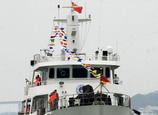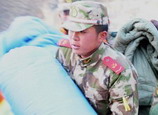
Russia's exports to China are principally raw materials, including timber, coal and metals. In 2012, Chinese direct investment in Russia grew more than 1.5 times to $4.4 billion.
"The top task for both countries is to transform the current close ties into substantial fruit in the fields of economic cooperation and cultural exchanges," Razov said.
He called for enhanced cooperation in high-value-added products, for more Chinese investment in Russia's resource-rich but sparsely populated Far East region that borders China, and for increased people-to-people exchanges between the two countries' young people.
Russia and China have developed a comprehensive strategic partnership based on mutual respect and shared interests, the ambassador said.
"The two countries' cooperation mechanism involving almost all areas is a unique one, and I don't think either Russia or China has such a mechanism with any other country."
Both countries have established annual exchange mechanisms between heads of state, premiers and parliamentary chiefs as well as regular negotiations between their foreign affairs, national defense and security bodies.
During Razov's tenure, Russian and Chinese presidents have visited each other's countries six times.
"The change of ambassador won't affect Moscow's determination to continue strengthening ties with China," he said.
Headlines of the newspaper Russia Beyond quoted a source close to the Russian Foreign Ministry as saying that Razov could become ambassador to Italy. He was deputy foreign minister before being appointed ambassador to China and has also served as ambassador to Mongolia and Poland.


















 Exhibition marks 10th anniversary of Leslie Cheung's death
Exhibition marks 10th anniversary of Leslie Cheung's death


![]()
